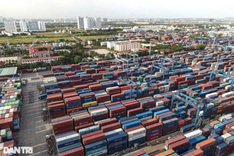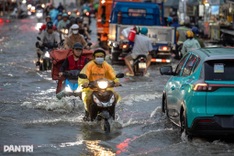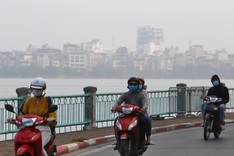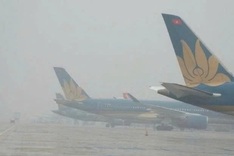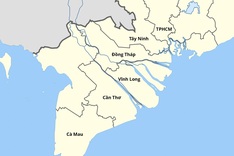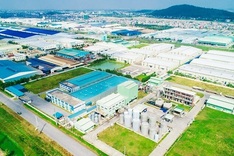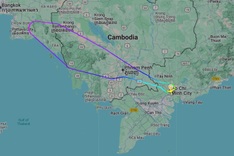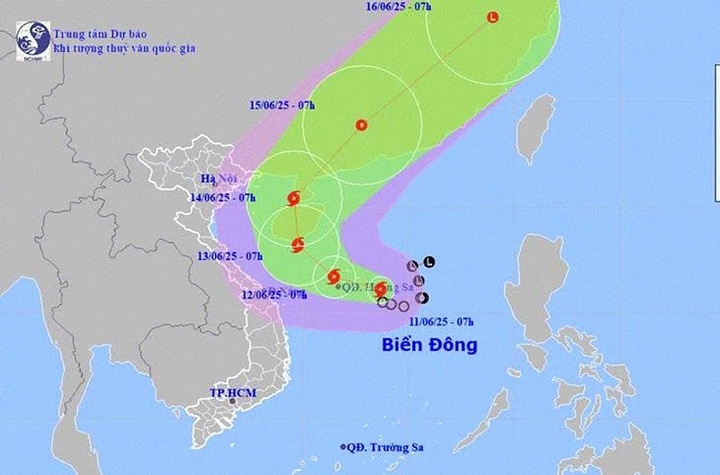
Tropical storm Wutip, the first of its kind in the East Sea this year, is expected to dump heavy rain on central provinces of Vietnam as it moves along the central coast. (Photo: NCHMF)
The system gained strength into the storm category on June 11 morning after moving slowly in a west-northwest direction at a speed of about 5 - 10kmh, according to the National Centre for Hydro-Meteorological Forecasting.
At 7 am on June 11, Wutip was located in the eastern waters of the Paracel Islands, packing maximum sustained winds of 62 - 74kmh.
In the next 24 hours, the storm will be moving west-northwest at a speed of about 5 - 10 kmh and is likely to strengthen further.
The storm is expected to affect the entire northern part of the East Sea, including the waters surrounding the Paracel Islands.
Vessels operating in affected areas are required to stay informed and avoid danger zones due to high waves, strong winds, and thunderstorms.
Satellite imagery shows a large cloud system shifted westward, bringing widespread rain to the central and southern central provinces, as well as the Central Highlands of Vietnam.
As the storm moves along the central coast of Vietnam, it is anticipated to dump between 100 - 300mm or even 450mm of rain on coastal provinces, especially from Quang Binh to Quang Ngai. Indeed, some localities experienced moderate to heavy rain from June 10 evening through early June 11.
There is a high risk of localised downpours exceeding 200mm in just six hours, which may lead to flash floods and landslides.
Meteorologists warned the path and strength of the tropical depression and then potential storm are still uncertain and may change over the coming days depending on atmospheric conditions.
In a dispatch signed on June 10, Deputy Prime Minister Tran hong Ha requested relevant ministries, agencies, and localities to closely monitor and implement appropriate response measures in the event of heavy rain and flooding caused by the tropical depression (that has already strengthened into storm Wutip).
Priority tasks include ensuring the safety of all vessels at sea, evacuating people from areas at high risk of landslides, flash floods, and deep flooding to safe locations, and reinforcing critical infrastructure and unfinished construction projects.

